Mendihuaca Project
ColombiaThe Project and its Challenges
In Colombia, the Sierra Nevada de Santa Marta mountain range is one of the world’s most important biodiversity hotspots for the conservation of protected species, but only 17% of its original forests remain. The region is also populated by four indigenous groups, including the Kogi – or Kágaba – people and the Wiwa. The latter have lost much of their ancestral land due to colonisation, agricultural development based on large landholdings, and even the cultivation of coca and drug trafficking, which also cause deforestation in the region. The violence of these processes has weakened indigenous societies, threatening their culture and their very existence.
The Tchendukua project aims to help the Kogi, Wiwa and Arhuaco (another native group) legally take back their ancestral territories and safeguard their cultures while conserving their environment. Mother Earth is at the centre of the culture of the indigenous peoples of the Sierra Nevada. When resettling on their ancestral lands, supported families can live with respect for their traditions, which are based on the pursuit of balance and harmony with nature. Thanks to their lifestyles and assisted natural regeneration processes, forest cover is re-established and biodiversity is gradually regenerated on these lands, which tend to be broadly degraded and polluted at the time of acquisition.
With initial support from the MDM Foundation between 2018 and 2020, Tchendukua – Ici et Ailleurs has taken important steps to enable the Kogi and Wiwa peoples to recover their ancestral lands. The initial goal of the partnership, based on the acquisition of 170 hectares of ancestral land in the Mendihuaca River Valley, has largely been achieved, with 685 hectares being restored.
Review of the results of the main actions carried out as part of the partnership over four years:
- Recovery of 685 hectares spread over 12 lands to Kogi and Wiwa political authorities
- Resettlement support, with the return of 127 families (700 people) to the land recovered by Tchendukua
- Training for young Kogi people on the land recovery process
- Regeneration of 60 to 70% of recovered land, with the rest benefitting from tree polyculture, leading to an increase in plant cover
- Socio-environmental monitoring programme with five studies conducted
- Awareness-raising activities with 35 events run online (6100 participants) or in person, and support for the production of Rendez-vous en Terre Inconnue, a French television programme in which astronaut Thomas Pesquet went to live with the Kogi people for two weeks, and which was watched by more than 6 million people
The MDM Foundation is renewing its support for Tchendukua for a further three years, with the aim of continuing its land recovery work and strengthening support for communities developing their skills.
The performance targets for 2022–2024 are as follows:
- To help the Kogi, Wiwa and Arhuaco peoples recover at least 250 hectares of land, through the purchase and repatriation of land, and through training on legal and technical territorial recovery processes.
- To help between 15 and 20 families settle in, regenerate biodiversity and transfer ancestral knowledge to younger generations (traditional cultures over 60 hectares, re-establishment of forest cover, agricultural training etc.)
- To improve understanding and protection of ecosystems through dialogue between indigenous and modern societies, participatory studies and awareness-raising events (9 events; 3000 people reached; 300 students from 3 schools who have been made aware of the issue)
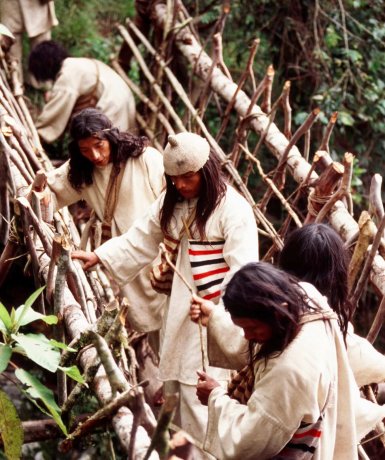
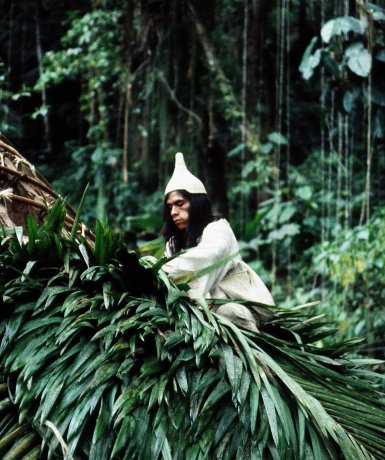
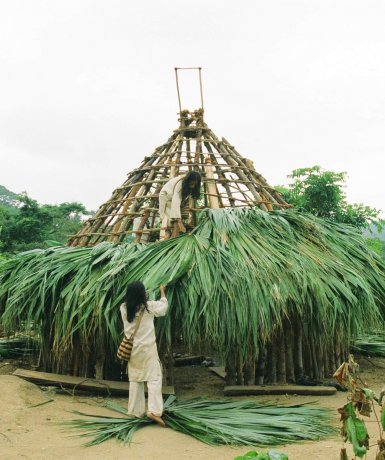
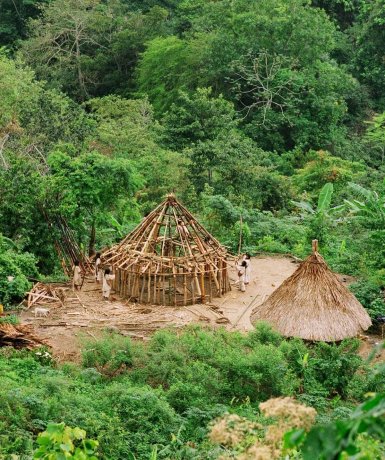
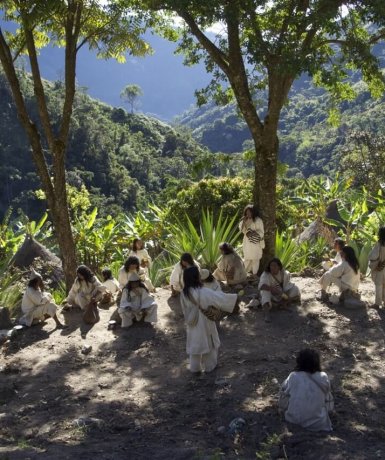
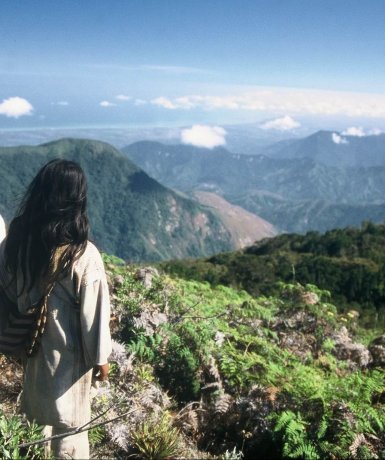
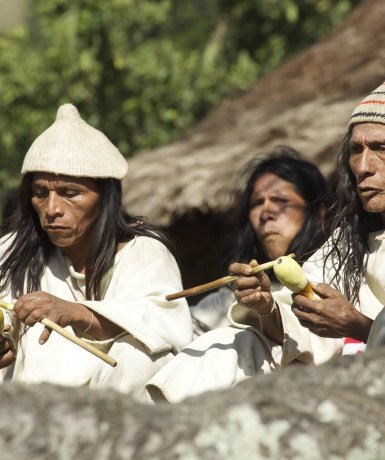
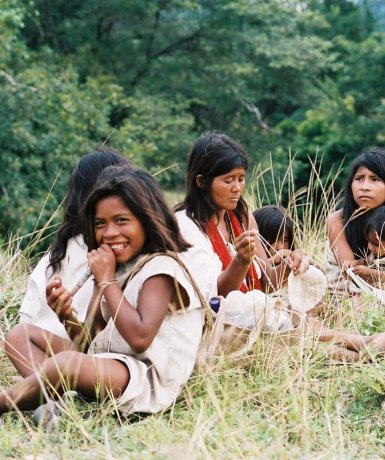
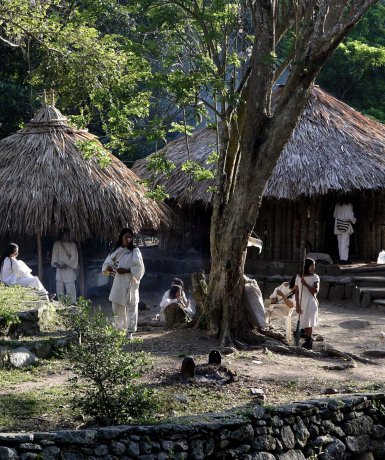
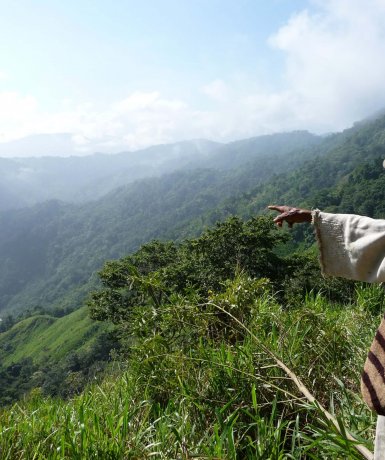
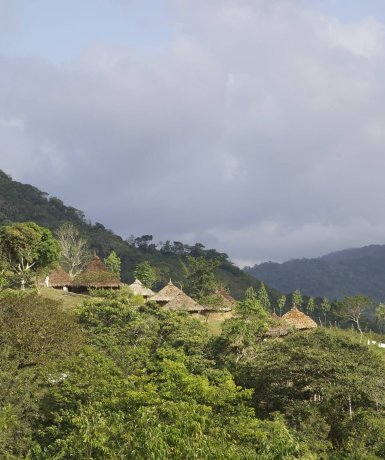
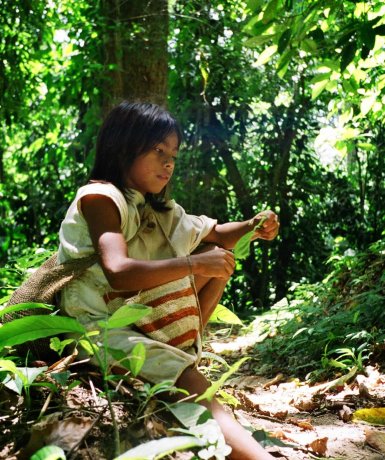
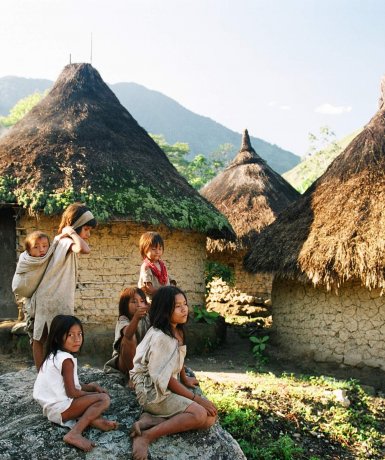
Beneficiaries of the Project
The direct beneficiaries are the members of the communities: the Kogi community, which has more than 1200 supported people; the Wiwa community, which represents more than 440 supported people; and for this new partnership cycle, the Arhuaco community, with about 100 supported people. More than 3000 people are also affected in Europe. In addition, all communities will be indirect beneficiaries, including all 20,000 Kogi, 10,000 Wiwa and 35,000 Arhuaco.
The "Pros" of the Project
Tchendukua’s approach is characterised by its respect for the cultural specificities, rhythm, and property of the populations it supports, and the rejection of all forms of intrusion.
In this sense, it wants to be flexible and to act in accordance with the reality of the field, in constant connection with the local authorities.
Project leader TCHENDUKUA
Established in France in October 1997, Tchendukua brings together people who are keen to preserve a way of life based on respect for nature and others and the search for balance.
Tchendukua is an association that aims to support indigenous communities so that they can take charge of their development by recovering their ancestral land and restore natural ecosystems and also to encourage sharing and meetings between indigenous cultures and cultures from elsewhere.
Website


 Contact us
Contact us 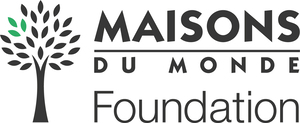




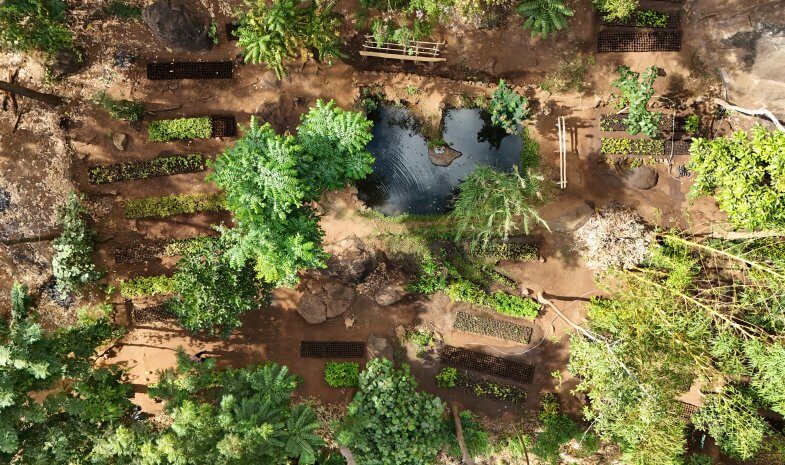
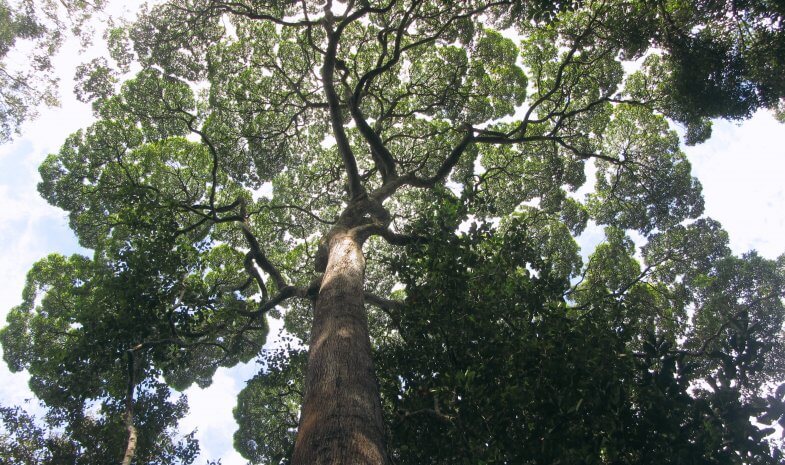
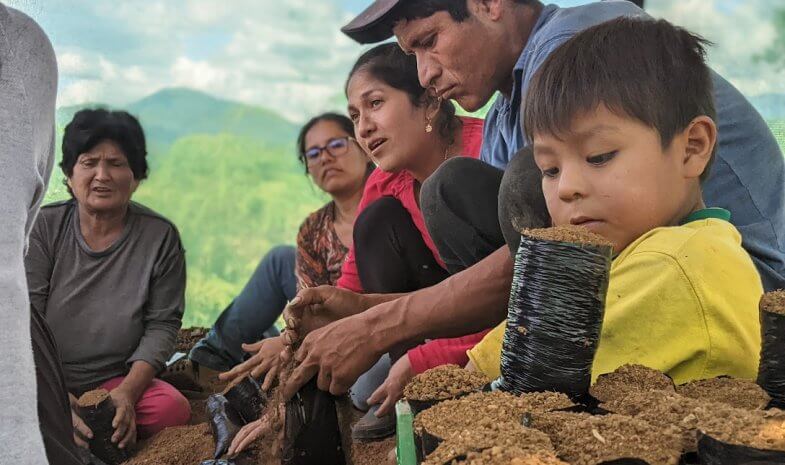
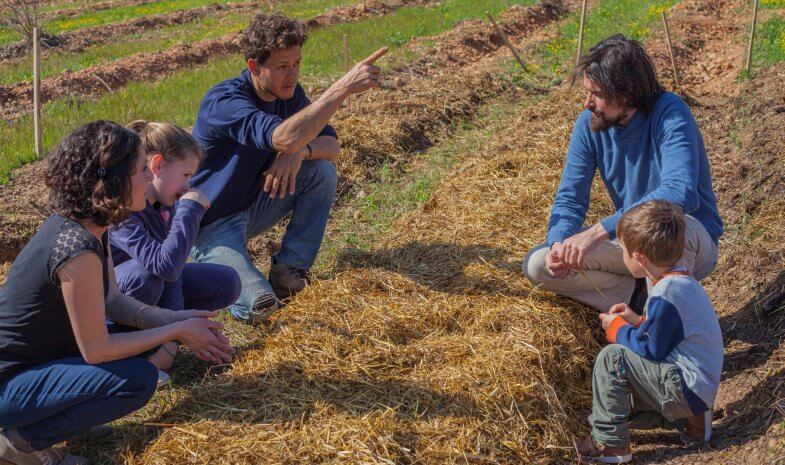

The men and women here are happy and grateful to Tchendukua. They are aware of the work that has been done over the years to recover land.
For us, getting land back also means allowing nature to live. Now we can eat the game from this land and no longer need to buy chicken, pigs or cows. The valley must be continued.
Beneficiaries from the Kogi community